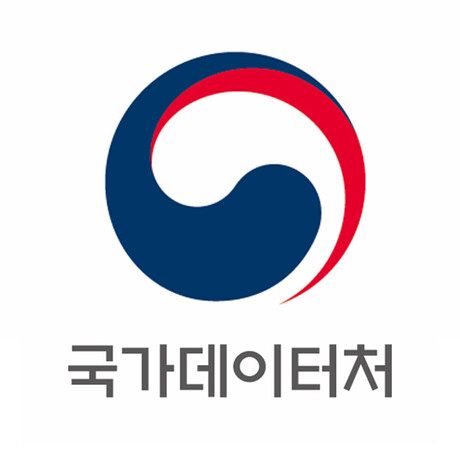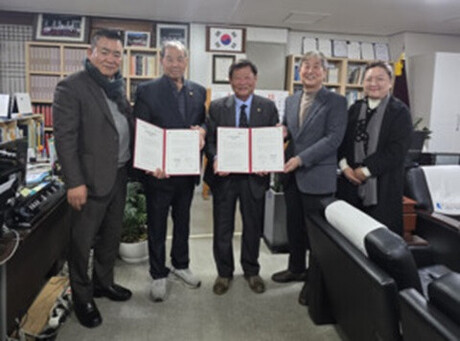
LOS ANGELES – The global fanfare for the Netflix film "K-pop Demon Hunters" (often stylized as "Kedeheon" in South Korea) has cemented K-culture's status as a worldwide powerhouse. Its theme song, "Golden," soared to the top of the U.S. Billboard singles chart, celebrating a storyline deeply rooted in the world of K-pop idols. Yet, as the film reaps an estimated intellectual property (IP) value of over ₩1 trillion, an unsettling question lingers for South Korea's creative industries: who is truly cashing in on the K-wave?
For "K-pop Demon Hunters," the answer isn't a Korean company. The film was a creation of Sony Pictures, a U.S. subsidiary of the Japanese giant Sony, with music produced by Republic Records, a label under America's Universal Music Group. This groundbreaking project—a Korean-themed cultural jackpot with U.S. and Japanese companies reaping the profits—has sent a jolt through Seoul's entertainment and business communities. It symbolizes a new, competitive era for the K-wave, one that experts are now calling K-wave 3.0.
The first wave, K-wave 1.0, was a niche phenomenon, driven by cult-favorite dramas like "Winter Sonata" that captivated a passionate, but limited, audience. K-wave 2.0 saw Korean artists like BTS break into the global mainstream, with K-products appearing on major retail shelves worldwide. But K-wave 3.0 is a full-fledged international competition. It’s a new landscape where the core tenets of Korean culture are no longer an exclusive domain but a global commodity—open for business and ripe for development by anyone with the capital to invest.
"The success of 'K-pop Demon Hunters' shattered the old stereotype that K-content could only be created by Koreans, using Korean directors and actors," said an entertainment industry insider in Seoul. "Now, with enough capital, any company, anywhere in the world, can produce K-content."
This trend of "K-culture without Korea" is rapidly expanding beyond the entertainment industry and into consumer goods, particularly in the food and beauty sectors. Global brands are not simply stocking Korean products; they're creating their own K-style offerings to capture the burgeoning market.
Just last month, Nestlé's U.S. subsidiary, Maggie, launched a "Korean Spicy Ramen," boldly featuring the Korean word for ramen on its packaging to appeal to K-food enthusiasts. The American grocery chain Trader Joe's sparked a viral sensation with its Korean-style frozen gimbap, selling out across the country and proving the immense demand for convenient, authentic Korean fare. Fast-food behemoths like McDonald's, Shake Shack, and Burger King have all jumped on the bandwagon, introducing spicy, Korean-inspired burgers to their menus, while global sauce brand Heinz released its own version of a Korean BBQ sauce.
In the beauty world, foreign companies are directly challenging the dominance of established K-beauty brands. The K-beauty market, built on a reputation for high-quality, trend-setting, and affordable functional cosmetics, is now being emulated by international players. Influencers like TikTok star Mikayla Nogueira, with her 16.3 million followers, launched a skincare brand focusing on "glass skin," a signature K-beauty aesthetic. Even American brands with no Korean heritage, such as Seoul Ceuticals and Seoul Mamas, are using Korean-style branding to sell their products on platforms like Amazon.
This surge of foreign competition has prompted a wave of soul-searching among Korean companies. While many believe the influx of new players validates the global appeal of K-culture, it also highlights a critical need for strategic innovation. Lee Young-ae, a professor of consumer studies at Incheon National University, stressed the importance of adaptation. "The fact that global companies are consistently releasing K-wave-related products signifies the growing influence of Korean culture in the global market," she said. "However, it also means that domestic companies must now compete on a global scale. They must strengthen their competitiveness in content, products, and marketing, and the government needs to establish a comprehensive strategy that includes the protection of IP."
Yet, industry veterans remain confident that the long history of Korean companies gives them a unique edge. Unlike their foreign competitors who are just now entering the market, Korean firms have spent decades in one of the most demanding, fast-paced, and trend-sensitive consumer markets in the world.
"Korean companies have honed their innovative capabilities over 20 years, navigating a fiercely competitive arena with the world's most discerning consumers," stated one beauty industry official. "This accumulated experience—of constant trial, error, and innovation—is a valuable asset that has made them competitive on the global stage. It’s an asset foreign companies will find difficult to replicate."
The rise of K-wave 3.0 is a double-edged sword. On one hand, it's a testament to the immense power of South Korean culture to transcend borders and influence global trends. On the other, it's a stark reminder that the originators of a cultural phenomenon are not guaranteed to be its sole beneficiaries. As the K-wave becomes a universal language, the race is on for South Korea to not only continue creating but also to secure its rightful share of the profits. The future of the K-wave will not be a solo performance, but a dynamic, global competition, and the question for South Korea is whether it can continue to lead from the front.
[Copyright (c) Global Economic Times. All Rights Reserved.]






























